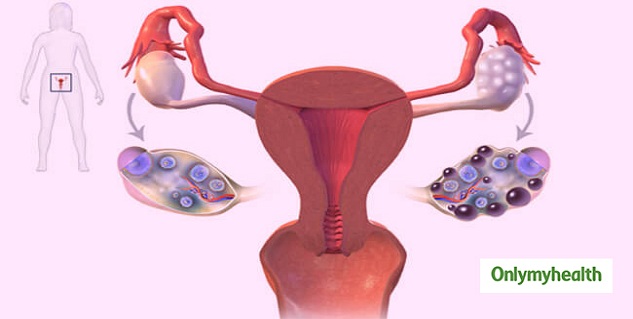
The very brave and beautiful Manisha Koirala is one of the most inspiring faces of Bollywood. She reigned the silver screen in the 90s where she has many as four Filmfare Awards in her name. She was last seen in Sanjay Dutt's Biopic 'Sanju' where she played the role of Sanjay Dutt's mother Nargis. Manisha is not only a fine actor but also a braveheart where she fought and won the battle with ovarian cancer. She penned down her journey in the book 'HEALED' which is inspiring many lives.
She underwent an extensive treatment for six months in America. Her gruelling journey ended in 2015 and her battle with cancer is one that inspires all. Battling cancer is not an easy task; one needs a lot of strength and patience. Awareness also plays an important role when it comes to cancer, and one must know the signs of the disease to take suitable treatment. Manisha is now living a healthy cancer-free life.
What is Ovarian Cancer?
Ovarian cancer is a type of cancer that develops in a woman’s ovaries. Ovaries are a part of the female reproductive system, and it produces eggs for reproduction. The ovaries are the primary source of the female hormones estrogen and progesterone. The ovaries are made up of 3 kinds of cells, and each one of them can develop into a different type of a tumour. The three main types of ovarian cancer are:
Epithelial Tumors
Tumours that develop from the cells that cover the outer layer of the ovary are known as epithelial cell tumours. Epithelial cancers are benign and are the most common type of ovarian cancer. It is also one of the most dangerous cancers accounting for 85% (approximately) of all ovarian cancer deaths.
Germ Cell Tumors
Ovarian germ cells tumours are tumours that develop in the cells producing eggs. They are non-cancerous cells that may be life-threatening. Teenagers and women in their twenties are at an increased risk of developing ovarian germ cells. The most prevalent type of germ cell malignancies are dysgerminomas, teratomas, and endodermal sinus tumours.
Stromal Tumors
Stromal tumours develop in cells that hold the ovary together and synthesise the female hormones estrogen and progesterone. These tumours are rare, and the most common types are Sertoli-Leydig cell tumours and granulose-theca tumours. Approximately only two percent of the ovarian tumour cases are granulose cell tumours.
Also read: Diet for Ovarian Cancer Patients
Symptoms of Ovarian Cancer

Also read: Treatment of Ovarian Cancer
It is essential to know the signs of ovarian cancer for a proper diagnosis as well as treatment. Here are some of the symptoms of ovarian cancer are:
- If you feel pain or uneasiness in the lower back and the pelvic region, it may be a sign of recurrence of ovarian cancer.
- Most of the women experience a noticeable loss of appetite which results in a change in their eating habits.
- As the eating habits change, they also start experiencing a decline in their energy level and trigger the feelings of fatigue and lethargy.
- Sudden changes in women’s urination habits work as an alarm bell. If the pressure on your urinary bladder increased or you urinate more frequently, then it is recommended that you get yourself checked.
- If you get a constant feeling of bloating even when you are not on your periods, then you must address the problem immediately.
- Vaginal bleeding is the most severe of these signs and should not be ignored. If you experience continuous vaginal bleeding similar to menstruation, then you should most certainly consult a doctor and get appropriate treatment.







